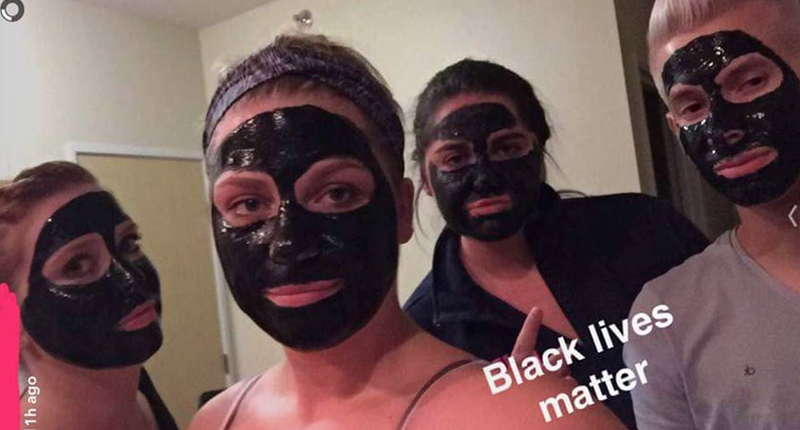You have /5 articles left.
Sign up for a free account or log in.
Last week saw another national discussion over the racist nature of blackface after Megyn Kelly defended it on her now-defunct NBC show as something other than racist and as appropriate for Halloween costumes.
For higher education, discussions of blackface are hardly new, but the reality is that students and others continue to appear in blackface, to the frustration not only of black students and faculty members, but many educators.
At Brigham Young University last week, the university was holding a symposium (in collaboration with historically black Morgan State University) on the 50th anniversary of the report of the National Advisory Commission on Civil Disorders, known as the Kerner Commission. But even as the university focused resources on that event, word spread on campus that a white student had appeared at a Halloween party in blackface. Many students were shocked, and black students (about 1 percent of the student body) were reported to be particularly upset.
The student was part of the communications school at Brigham Young, which was coordinating the Kerner symposium's focus on press coverage of the events of a half century ago.
Edward L. Carter, director of the communications school, said he had several meetings Thursday and Friday with students upset about the blackface incident, and with the student who wore blackface. Carter via email said that the student has apologized via a Slack group to communications students, but that the issue is not over.
In a letter he sent to students and faculty members, Carter said that wearing blackface was inconsistent with the values of the university, which involve respect for all. He also said he and others would "be working with the student who wore the costume. While I am reserving judgment on the outcome, I will say that this kind of behavior appears to be out of line with the School's Professionalism Statement and that repercussions could include warning, suspension or removal from the communications major."
Brigham Young is far from alone in higher education in facing blackface incidents. In the last few years, some of the colleges and universities facing blackface incidents have included Albright College, California Polytechnic State University at San Luis Obispo, Oklahoma State University, Purdue University, University of Central Arkansas, University of Nevada at Reno, University of North Dakota, University of Oregon and University of Wisconsin at Whitewater,
 While the use of blackface is almost always condemned by leaders of the colleges involved, many times it is not formally punished, in particular at public institutions, where it is viewed as a form of free expression, however offensive it may be. Most of the blackface incidents become public because students not only wear blackface, but post photographs of themselves on social media, such as the image at right featuring University of North Dakota students.
While the use of blackface is almost always condemned by leaders of the colleges involved, many times it is not formally punished, in particular at public institutions, where it is viewed as a form of free expression, however offensive it may be. Most of the blackface incidents become public because students not only wear blackface, but post photographs of themselves on social media, such as the image at right featuring University of North Dakota students.
While many colleges and universities discourage students from wearing costumes that make fun of people's race or ethnicity, most of those actions by colleges are a matter of discouraging, not banning, which probably wouldn't be legal at public institutions.
But a constant meme among those who consider themselves warriors against political correctness is that colleges have "costume police" who regulate costumes. And that's how Kelly started off her show last week, repeatedly saying that the student union at University of Kent, in Britain, was trying to "ban" certain costumes.
The university press office said that there is no policy at Kent about costumes. What Kelly was reacting to was a draft of recommendations being considered by the student union to encourage students not to offend in their costume choices. But Kelly was apparently quoting from the draft and didn't note that Kent students ultimately are making their own choices about costumes.
The Kent Union issued this explanation of why it is drafting recommendations for students ("fancy dress" is a Britishism for "costume"): "Over the past few years we have witnessed incidents where student groups have worn inappropriate fancy dress clothing which has caused offense to some of our students at our university. Our values as a union are to be bold, inclusive and supportive and therefore it is a priority for us to promote an inclusive campus and to be respectful of all students, taking into account their lived experiences and points of view and that is what we should be focusing on here.
"We are being proactive in looking out for all students whilst empowering them to have a great time at Kent and this is the narrative which is seemingly being missed in the headlines. We are aware that students generally have an understanding of these issues, and most fancy dress events are not problematic, but we believe it is important to raise awareness of potentially problematic themes and work with our student groups to ensure successful student run events."




